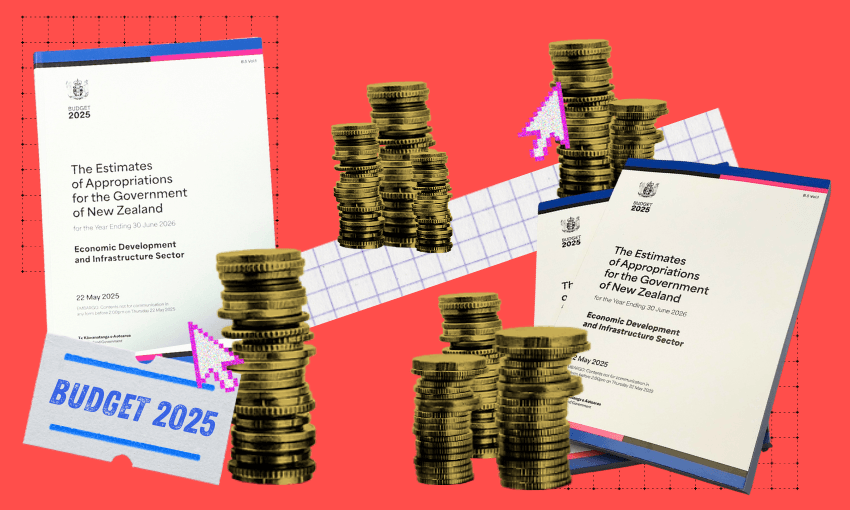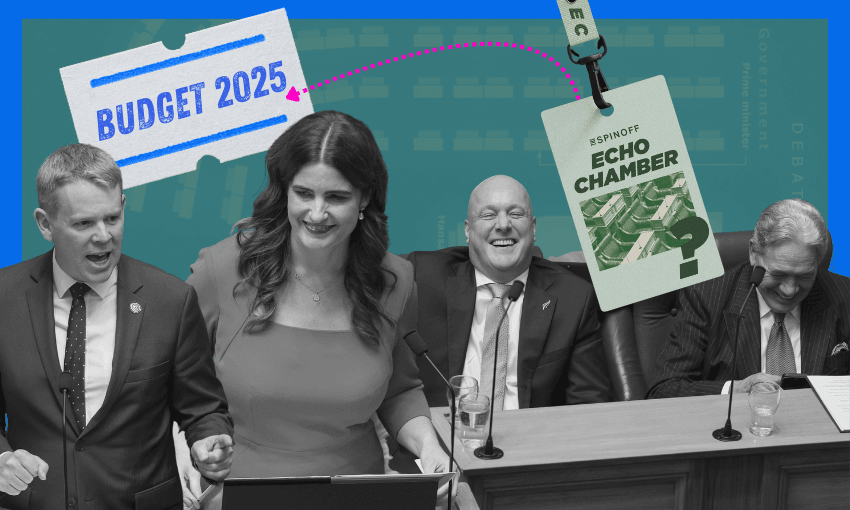The government has touted over $700 million in funding for Māori. But when you strip out the reallocated funds and examine what’s actually new, the real number is closer to $38m. Meanwhile, more than $750m in Māori-specific initiatives have been axed.
Budget 2025 contains some wins for Māori-focused initiatives, but they come in the shadow of substantial cuts across core housing, education and economic development programmes.
Among the key announcements:
- $14 million over four years for Māori wardens, Pacific wardens and the Māori Women’s Welfare League. The funding covers transport, volunteer training and admin support.
- $54m in operational funding and $50m in capital funding for Māori education. This includes new classrooms in Māori medium and kaupapa Māori schools, te reo and tikanga training for 51,000 teachers, and a Virtual Learning Network for STEM education in kura kaupapa.
- Reallocated funding to add approximately 50 new teaching spaces for te reo Māori learners.
- A new housing fund to deliver social and affordable rentals, with Māori providers eligible through the Flexible Fund.
- $40.2m per year from 2025/26 for the Māori Development Fund to support the Tōnui Māori economic growth plan.
Finance minister Nicola Willis said the budget showed “a responsible commitment to all New Zealanders, including tangata whenua” and pointed to new funding as evidence of the government’s support for Māori communities. “Over $700m has been committed to initiatives supporting Māori outcomes,” she said in her budget day address.
However, critics argue these investments are overshadowed by sweeping cuts:
- The Māori Development Fund itself has been cut by $20m over four years, dropping from $45.2m to $40.2m in year one then continuing annually.
- $32.5m in cuts to Māori housing supply programmes, including the return of unallocated funding from Whai Kāinga Whai Oranga.
- $36.1m in cuts to Māori education, including disestablishing the Wharekura Expert Teachers programme and removing Māori resource teacher roles.
- A further $36.1m reprioritised from kaupapa Māori and Māori medium education.
- The Kāhui Ako collaboration programme, which included many Māori providers, is being slashed by $375.5m.
Labour’s Māori development spokesperson Willie Jackson said the government “should hang its head in shame”. He claimed more than $1bn had been stripped from Māori-specific initiatives across the past two budgets.
“This is a government that promised to reduce waste but has instead targeted kaupapa Māori,” Jackson said. “We’re seeing entire housing programmes scrapped, education investment wound back, and economic development sidelined. Meanwhile, they’re increasing the ministerial travel budget and rolling out tax cuts that benefit the wealthy.”
Te Pāti Māori co-leader Rawiri Waititi also blasted the budget, saying it further eroded the Crown’s relationship with tangata whenua. “This budget doesn’t build a future for Māori – it builds our demise. A truly responsible budget would fund our solutions, not suppress them.”
Despite the headlines, minister Nicola Willis’s claim of $700m in Māori funding is largely built on reallocated or pre-announced pūtea. Budget documents reveal only $38m of new money directly allocated to Māori.
Other items of note include:
- Working for Families thresholds have been adjusted to support more low-to-middle income whānau with children. The income threshold has been lifted to $44,900 from $42,700, providing increased payments for many Māori families.
- Te Pou Tupua and Te Urewera Board retain their income tax exemptions as per their Treaty settlements.
- Treaty settlement liabilities and the relativity clauses with Waikato-Tainui and Ngāi Tahu remain forecast as fiscal risks, as does the unresolved issue of aquaculture settlement values and timing.
Some iwi-led initiatives, such as Toi Tū Tōrangatira in Te Tairāwhiti, have received targeted support through regional infrastructure funds. But others are being consolidated or cut entirely.
Māori housing was a central casualty. The Whai Kāinga Whai Oranga programme, established to address chronic shortfalls in Māori housing, is effectively defunded, with the government citing a need to consolidate efforts under the more general Flexible Fund. Jackson called this “a deliberate dismantling of progress” and said it showed “the government is walking away from the data”.
The reprioritisation of education spending has also drawn criticism. The disestablishment of the Wharekura Expert Teachers programme, removal of Resource Teachers: Māori, and significant funding shifts away from kaupapa Māori and Māori-medium education are seen by many as undermining language revitalisation.
“There’s no pathway to revitalising te reo without properly resourcing the people doing the work on the ground,” said Te Kura o Hato Hōhepa Te Kāmura principal Mereana Tipene. “Repackaging cuts as support doesn’t help our kids.”
Meanwhile, broader changes to the pay equity regime – part of a plan to reduce future Crown liabilities – are expected to impact thousands of underpaid workers in female-dominated sectors, many of them Māori. PSA national secretary Fleur Fitzsimons called Budget 2025 “a wage theft budget” and accused the government of “stealing from the working class to fund tax cuts for landlords”.
The inclusion of targeted tax deductions for Māori authorities donating to community initiatives, as well as the ongoing tax exemptions for settlement entities, are among the few Treaty-based mechanisms retained in full.
In summary, while Budget 2025 contains modest new funding lines for Māori and continues some Treaty obligations, it marks a substantial rollback in dedicated support across housing, education and economic development. Critics say the government is shifting from partnership to assimilation – prioritising universal framing while eroding kaupapa Māori infrastructure built over decades.
This is Public Interest Journalism funded by NZ On Air.






